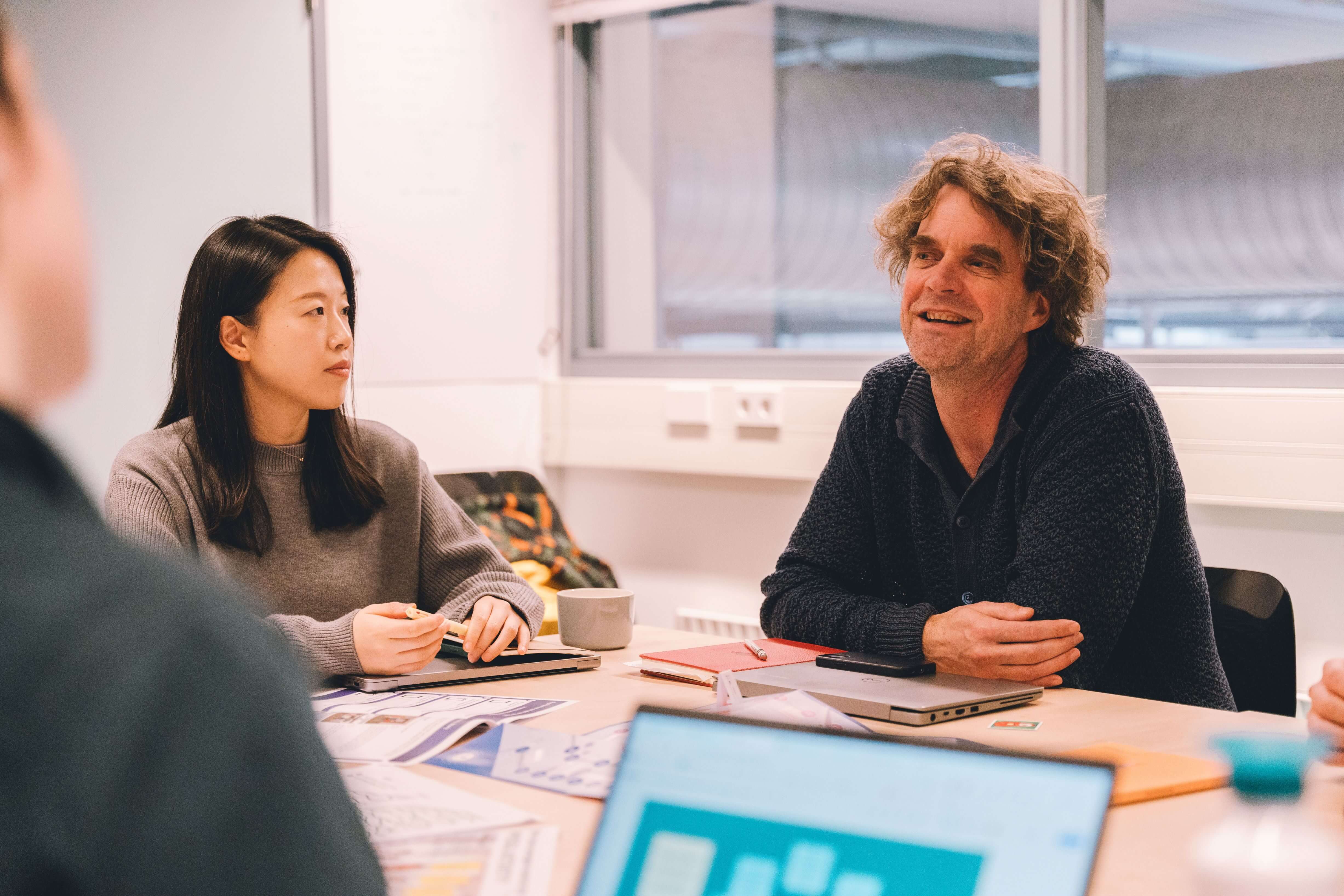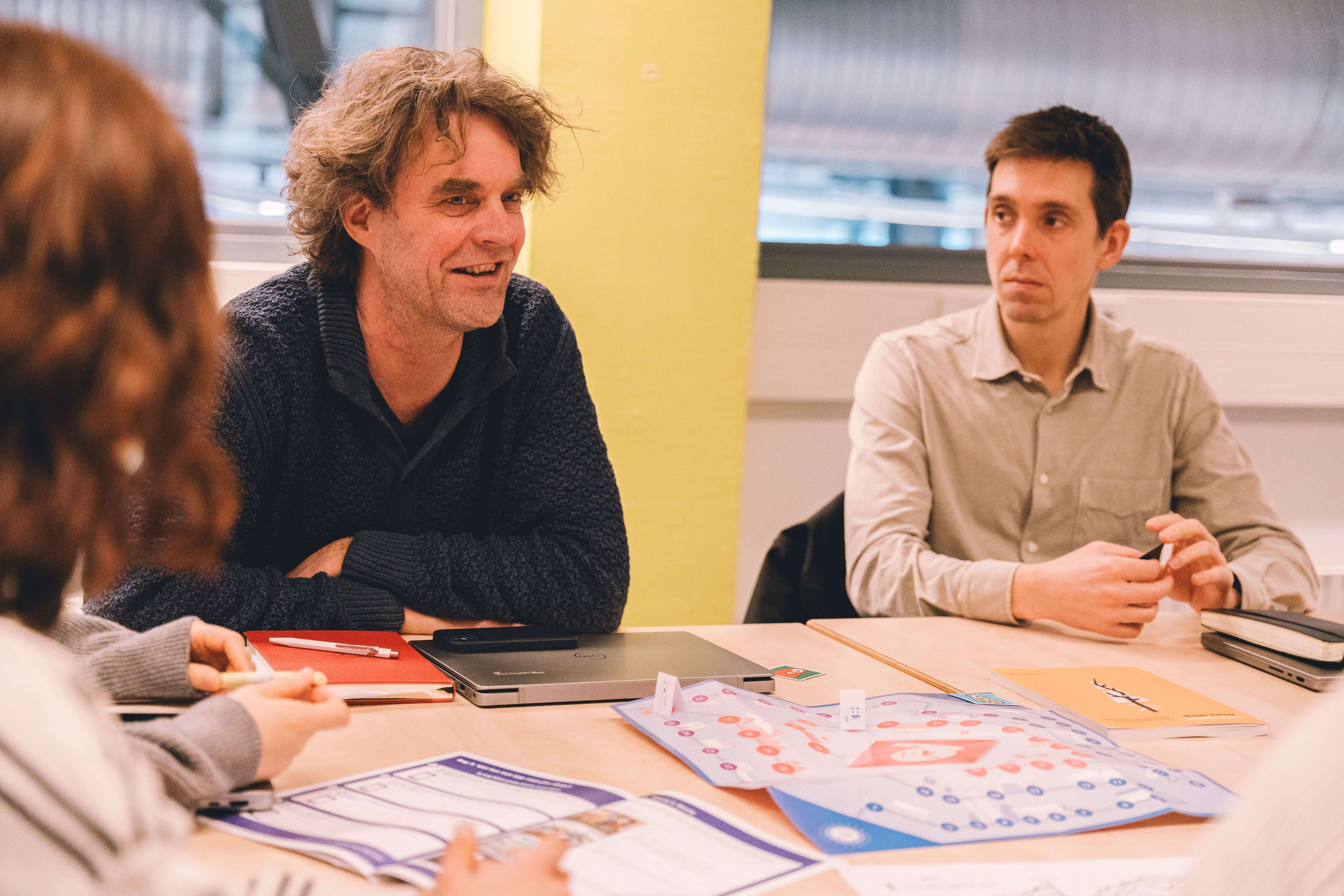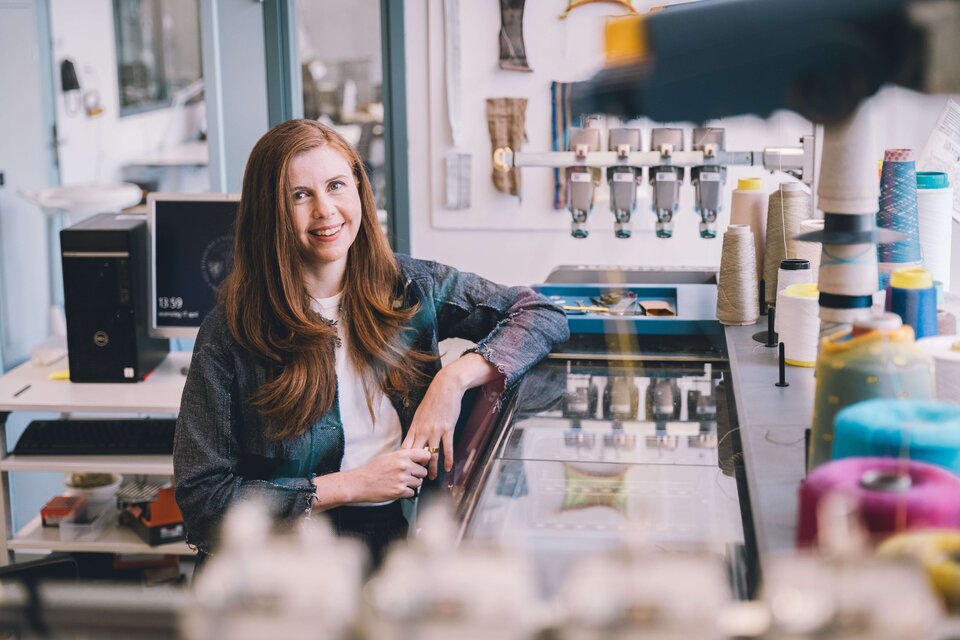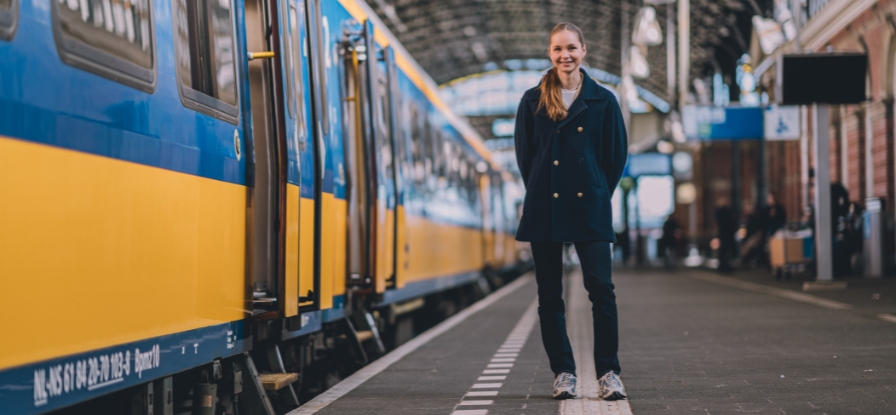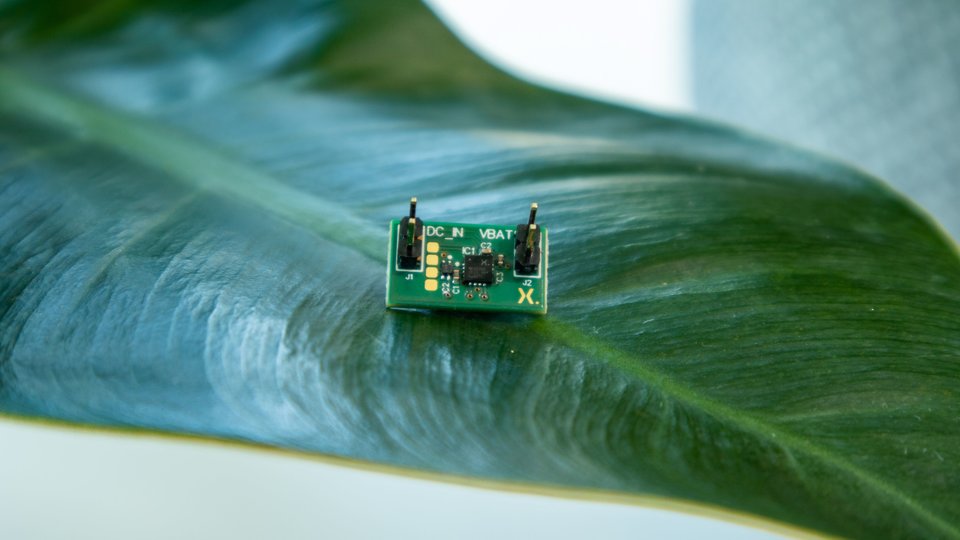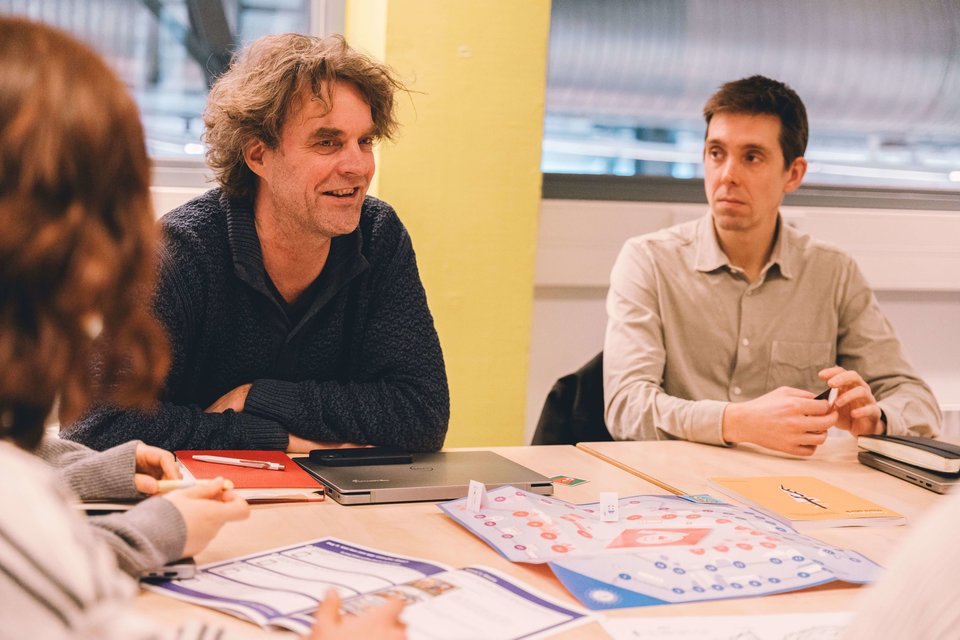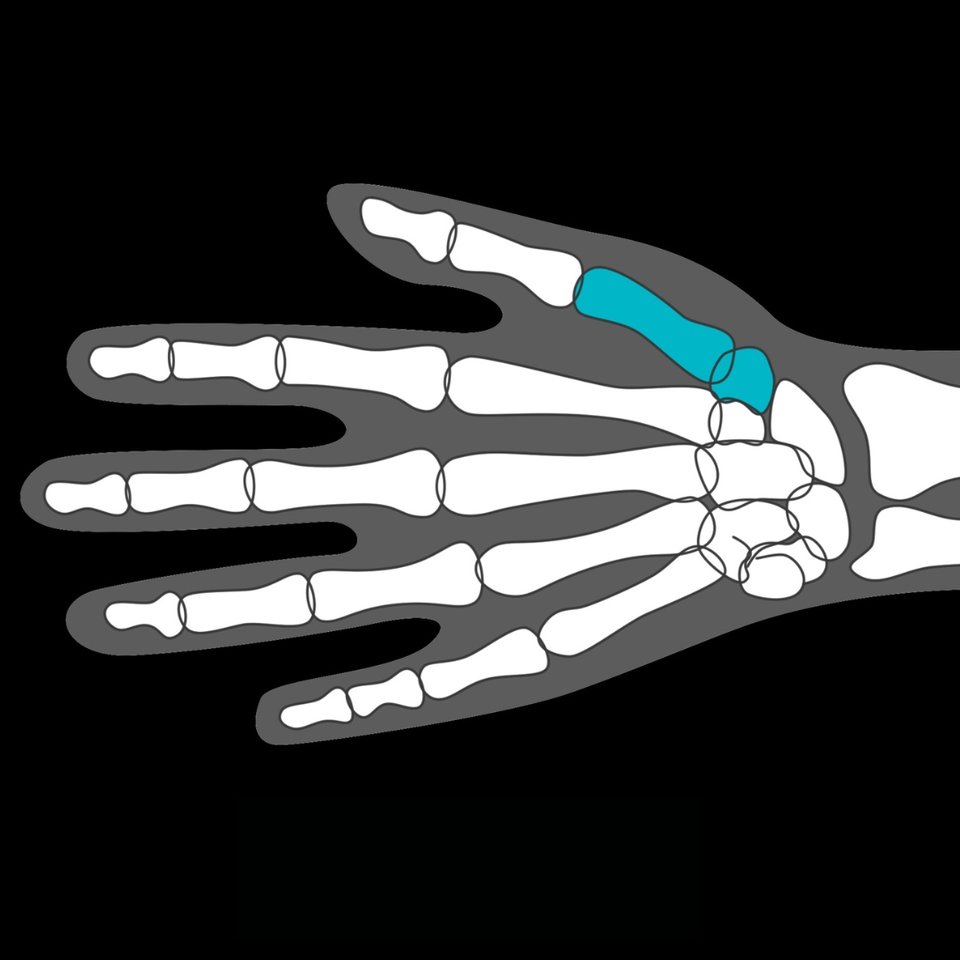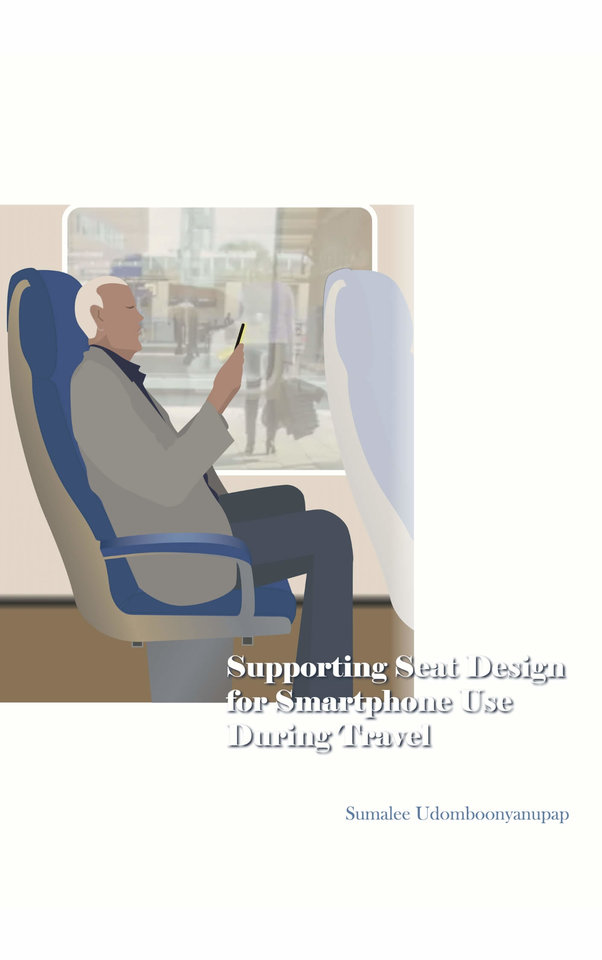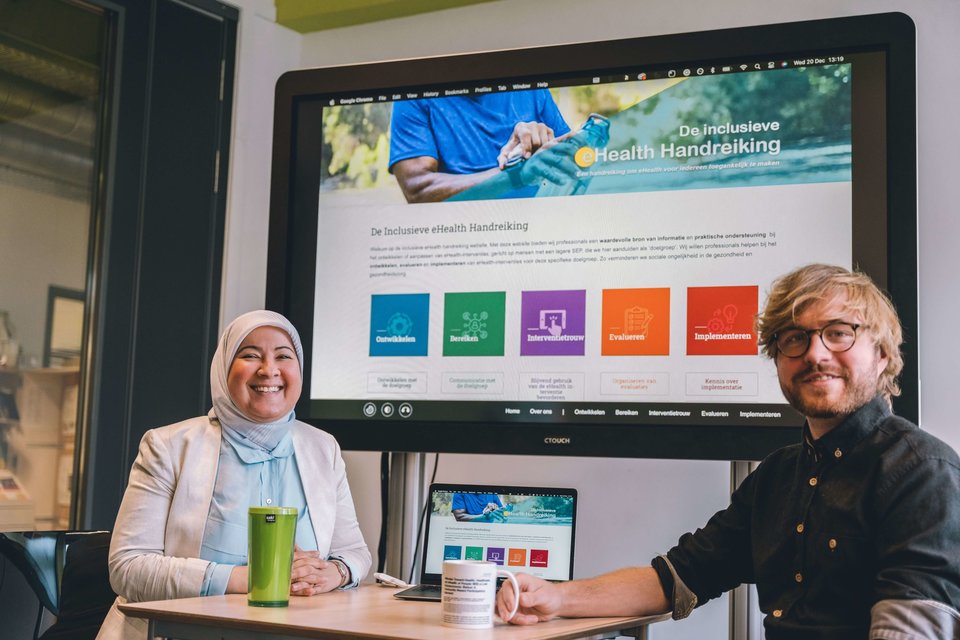Becoming healthier through smart game design
Valentijn Visch designs solutions to motivate people to pay attention to their health. For this, he uses techniques such as game design and interactive storytelling. Collaboration with researchers inside and outside TU Delft is key for him. "More and more health researchers want a designer to join."
Say someone tells you to change your lifestyle. That you need to stop smoking, for example. Or lose weight. But you either don't see why you have to change, or you don't know how to go about it. How do you go about solving the situation?
"As a designer, you first go out and explore people's health needs and capabilities, then you develop a solution," explains IDE researcher Valentijn Visch. "For example, it is essential to understand and reach people who lack health knowledge. We use techniques such as game design, interactive storytelling, participatory research and co-creation for this."
Paying more attention to your own health
A veritable research group has emerged from Valentijn Visch's designs and techniques. Design for Health Motivation has three lines of research: 'Design methods to reach specific health groups', 'Design means to increase health motivation', and 'Design for sustainable health ownership'. Researchers there work together to devise solutions to motivate people to pay attention to their health.
"For example, we developed a digital game for people with anxiety disorders. When they feel an attack coming on, they try to recall situations where they feel safe. For example, the memory of a riverbank on a summer day where you are lazing in the sun. We developed an app where you immerse yourself in a flower landscape, and you can attach positive memories to those flowers. Like music, poems, images. With the app, you are immediately immersed in a multimedia environment, and you can clear your mind faster and easier."
Collaboration is central
Collaboration is central to Valentine's work. It is the strength of the Faculty of Industrial Design Engineering (IDE), he says. "It starts within our faculty, where we look at healthcare from different angles. We have a close-knit and strong group. More and more health researchers are seeking us out, because they want a designer there. We have worked together with TU Delft's Faculty of Technology, Policy and Management and the Faculty of Electrical Engineering, Mathematics and Computer Science. And with organisations outside ofTU Delft, such as Erasmus University, Erasmus MC, Leiden University, LUMC, through Medical Delta for example, and the GGZ."
Valentijn also has a fruitful collaboration going with the Design Academy in Eindhoven. "We developed the Smell Memory Kit with them, for example. It's a game for youngsters with a complex background in an assisted living situation. In front of them are several small jars. Each jar contains a different smell. Think of the smell of a wet coat, cooked cauliflower, or fresh cake. The cake, for example, brings back memories of grandma baking fresh cake. It stirs up emotions, sparking conversation. Thus, participants of the conversation get to know and understand each other better."
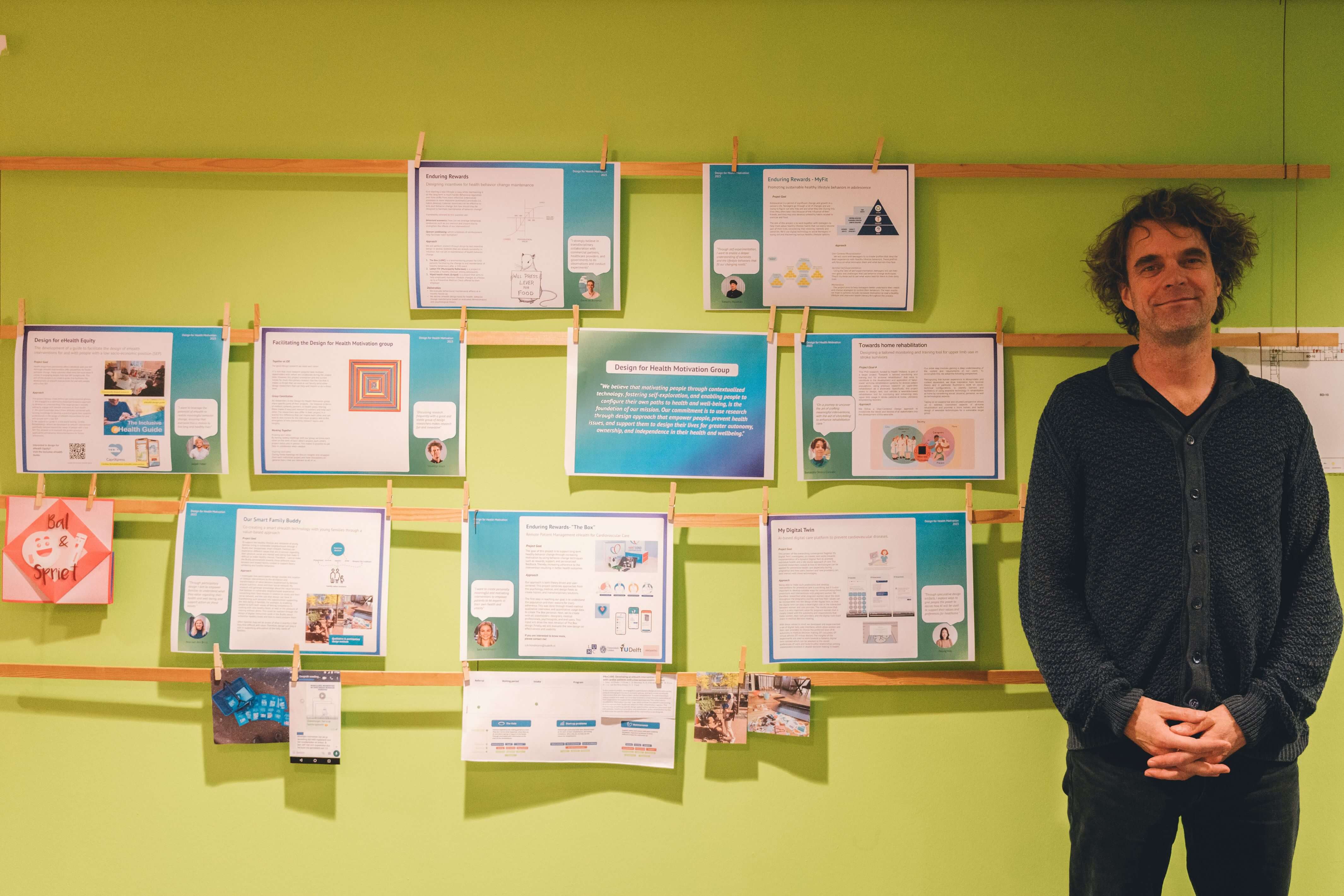
Ideas from arts and culture
"I have a background in art, psychology and humanities and I am convinced that there is a lot to be gained by collaborating with the cultural sector and humanities. There are so many inspiring ideas which we can use in design research to deal with care transitions. That collaborative effort is getting better and better, by the way. For instance, interactive storytelling, borrowed from the humanities, is a concept we have already used several times. Think about stigma with obesity. Obesity is a taboo subject, people avoid it. It is, however, easy to identify with a fictional character from a dream world. That is safe. That way, step by step, you make the link with the real world and evoke empathy for people with problems that are taboo."
"I enjoy showing what is possible and sparking research discussions on design for health. To develop new ideas and interventions together with other organisations and disciplines. All information about my research is freely available. I encourage everyone to get involved, so that as many people as possible can benefit from our research."
Valentijn Visch
- +31 (0)15 27 84951
- V.T.Visch@tudelft.nl
-
Room C-3-260

